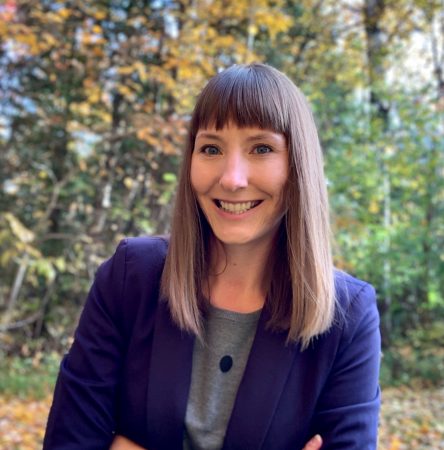Trista Vick-Majors (BioSci/GLRC) was interviewed in a WLUC TV6 segment about how a continuing lack of winter ice cover could change ecosystems, the Great Lakes, and the future of agriculture. It also touches on how these changes could impact small businesses and outdoor winter activities–such as ice fishing and snowmobiling. The WLUC TV6 story mentioned the project launched by Trista Vick-Majors to gather winter-specific lake samples for comparison to summer data, with researchers around the Great Lakes participating in sampling this month. The story was picked up by more than 300 news outlets nationwide, including the Washington Post, Houston Chronicle and Seattle Times.
Dr. Trista Vick-Majors is a microbial ecologist who studies biogeochemical processes in aquatic ecosystems and microbial communities. She is interested in how microbial communities and their diversity are impacted by physical and chemical characteristics. In addition, her work focuses on how seasonal change or ecosystem change, such as the formation of ice-cover, has an effect on these microbial communities. The interface of microbial ecology and biogeochemistry is where her research takes place.
About the Biological Sciences Department
Biological scientists at Michigan Technological University help students apply academic concepts to real-world issues: improving healthcare, conserving biodiversity, advancing agriculture, and unlocking the secrets of evolution and genetics. The Biological Sciences Department offers seven undergraduate degrees and three graduate degrees. Supercharge your biology skills to meet the demands of a technology-driven society at a flagship public research university powered by science, technology, engineering, and math. Graduate with the theoretical knowledge and practical experience needed to solve real-world problems and succeed in academia, research, and tomorrow’s high-tech business landscape.
Questions? Contact us at biology@mtu.edu. Follow us on Facebook and Instagram for the latest happenings.
